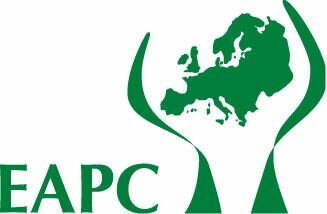|
Latin America (LA) is a developing region and although Palliative Care (PC) has been up scaled in the past 20 years, there is very limited research activity.
Most treatment protocols, evaluating tools and educational PC material come from developed countries. But there are significant differences among them and LA (socio economic and cultural issues, different causes of morbidity and mortality) and many times the information generated in developed countries has limited applicability in LA.
In order to meet the needs of patients in the Region with the available resources, palliative care workers in LA need to carry out research.
Current status:
A search in Medline of publications on PC in indexed journals showed only 81 out of a total number of 54,521 were from LA authors (DeLima L, 2005). According to this figures research activity is almost inexistent (< 1 %).
There is also an indeterminate number of regional papers that are regionally published in general media and medical and PC journals, and that are presented in regional and national PC meetings; i.e. in the 7th Congress Latin-American of CP of Montevideo (Uruguay), and in the 8th Congress Latin-American of CP of Isla Margarita (Venezuela) 95 and 84 papers were accepted for presentation, respectively.
This rough evaluation of research activity based on the publications and submissions on PC from LA authors shows that there is an unknown small amount of unshared research activity with heterogeneous quality.
The preliminary results of an on-line survey conducted to obtain current information about status of PC research in LA countries (Wenk R, De Lima L and Eisenchlas J, 2006) showed that:
- slightly more that half of the people surveyed had carried out some kind of research activity in the last 5 years and,
- those that have training in research or receive some technical specific assistance during research carried out more research than those that do not.
The resulting situation is that limited information is available on how and where people die, on interventions for symptom control, and on clinical, organizational and economic issues related to the provision of PC. It’s assumed rather than known what patients and families need and receive at the end of life. The value of PC is anticipated rather than demonstrated.
There are several reasons for this, but the most important barrier is that in 80% of LA countries PC is not recognized as a discipline. This situation has a negative impact on research activity: resources are limited, availability of trained researchers and training opportunities are scarce, and knowledge and expertise in research are consequently minimal.
Challenges:
Research is a pending task of the development of PC in LA. In LA there are resources to carry out research, and people who are committed to do research in palliative care.
The ALCP has a unique role in identifying and solving the challenges of research activity. We wish and hope to obtain both information about the regional PC status and to assist individuals and programs to start or optimize research activity with 2 current initiatives:
A. The development of a regional data-base (with assistance of NHPCO, SECPAL and WWPCA) posted on the ALCP website to map of the nature and extent of PC across LA. The data collection process will start in 2006; the database will develop in three stages over several years.
• Stage 1. Identification of regional providers. Contact information. 2006.
• Stage 2. Provider’s demographics. Patient’s demographics. Services provided. 2007.
• Stage 3. Outcomes measurement and evaluation. 2008.
B. The development of a regional research task force with the following objectives:
- To increase communication among with research activity and if possibly to develop a network
- To formulate a research agenda according to regional needs
- To develop protocols for multicentric studies, according to the research agenda and the available resources
- To support those that conduct research (technical information, data analysis, software, grants, etc)
- To monitor both offers and requests of technical assistance, and matching them and assuring the accomplishment of the projects goals and objectives of the research partners
Latin America needs support from developed countries to carry out these research activities. The developed countries have collaborated actively in the dissemination of PC, and supporting research is a way to improve its dissemination. There have been various concrete efforts to collaborate, and in many opportunities they were not used properly. Probably the timing and the people were not adequate.
We are confident that we can be entering a new, organized and productive era of collaborative and progressive research activity. It will allow us to answer questions about the suffering of dying patients and families, PC providers, epidemiological issues, quality and magnitude of the usage of existing knowledge and organizational and economic factors. This information may result in the regional increase of excellent PC.
Roberto Wenk and Liliana DeLima
Latin American Association for Palliative Care
|
